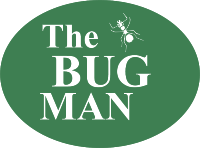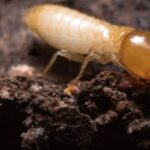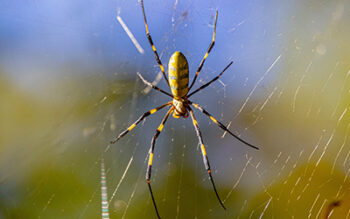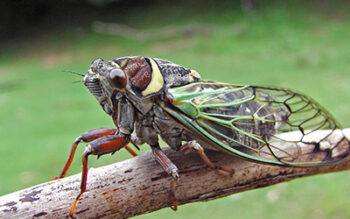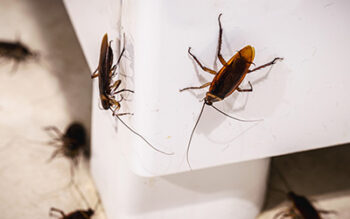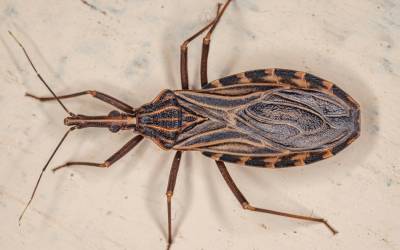
New invasive insect threats can easily cause panic. Remember videos about “murder hornets” making the rounds on the internet? And before that, killer bees were coming? Along those same lines, you might have recently heard of “kissing bugs,” an invasive insect that’s native to tropical regions of Central and South America. But how big of a risk are kissing bugs, really? Will they go the way of previous pest panics, or are real reasons for Tennesseans to be concerned about kissing bugs?
How Do You Get Chagas Disease?
Chagas disease is caused by a parasite called T. cruzi that’s carried by kissing bugs (also known as cone-nosed bugs, vampire bugs, or assassin bugs). Kissing bugs come out at night to feed. They prey on vertebrates, and while they will bite anywhere on the body, they tend to prefer biting faces, especially near the mouth or eyes. Hence, the name “kissing bugs.”
Chagas disease is transmitted after kissing bugs have fed on their host. Transmission does not occur through saliva. Transmission happens when the kissing bug, still on a person’s face after a blood meal, defecates. The T. cruzi parasite is contained in kissing bug feces; it enters the body through the bite wounds that are left behind.
It’s estimated there are more than 6 million people with Chagas disease worldwide and 150,000-200,000 new infections each year.
What Are Chagas Disease Symptoms?
The acute stage of Chagas disease symptoms are often minor, and can include headache, fever, and malaise. Sometimes, an individual can have no symptoms. Very rarely, acute symptoms can be very severe and include inflammation of the brain and heart. Seek immediate medical attention if you feel very sick following a possible bite from a kissing bug.
Seek medical attention if you believe you’ve been bit by a kissing bug – even if symtpoms are minor or nonexistent. If there’s any possibility you’ve been exposed to the T. cruzi parasite that causes Chagas disease, don’t wait to see a doctor. You may still have it even if you think you don’t. Even if you’re asymptomatic, you’re still at risk for developing the chronic form of Chagas disease. Doctors can prescribe antiparasitic treatments to prevent that.
You don’t want chronic Chagas disease. It’s a life-threatening disease that wreaks havoc on major organ systems including the digestive system, heart, and brain. Once Chagas reaches the chronic stage, it is also unfortunately untreatable.
Kissing Bug Lookalikes
When it comes to kissing bugs, it’s important to be vigilant without making yourself anxious. Why? Because there are a lot of insects that look a lot like kissing bugs, so even if you think you see one, there’s a good chance it’s not actually a kissing bug. Yes, people have spotted kissing bugs in Tennessee. No, they’re not common. But given the dangers they can pose, it’s important to keep an open eye out for them.
Here are a few things to keep in mind when looking for kissing bugs on your Tennessee property:
- They’re rare. They’re becoming more common here in the southern U.S., but it’s still unlikely you’ll find one.
- There are many insects that look like kissing bugs – like beetles and stink bugs.
- There are many kissing bug species with subtle variations. This makes it even easier to mistake them for something else.
Generally, kissing bug species share some characteristics. They have six legs and two pairs of wings. Their bodies are almond-shaped, with cone-shaped noses. They often have red or orange coloring.
What to Do If You Find Kissing Bugs
If you’re sure you’ve found a kissing bug, report your sighting to Texas A&M University’s Kissing Bugs & Chagas Disease in the United States Community Science Project.
After that, contact a local pest control company to come take a look. It’s unlikely to be a single specimen. A trained pest control expert – like the pros at The Bug Man – can perform a thorough property inspection and use cutting-edge pest control technology to remove the problem.
Need a Pest Control Estimate?
We'll call you! Leave your information below.
Are Kissing Bugs a Problem in Tennessee in Central Tennessee
Serving Central Tennessee
